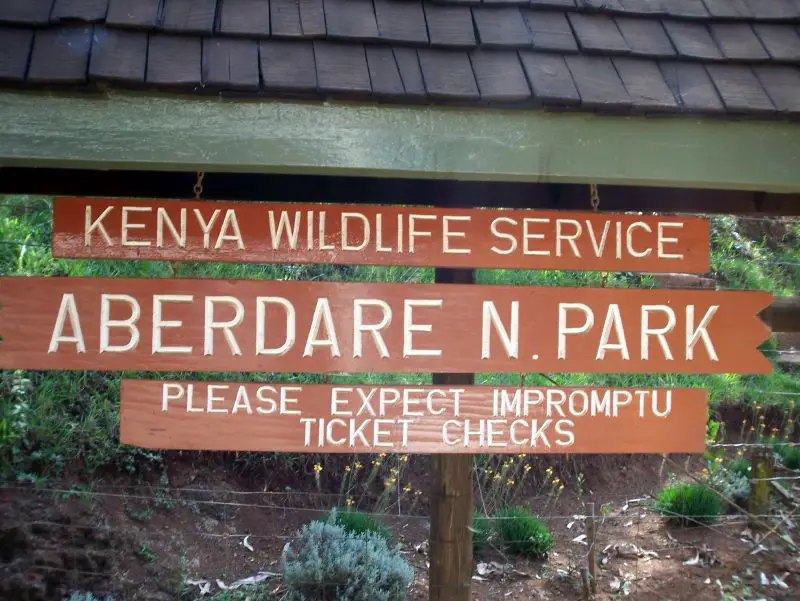Education in Meru town, Kenya, is a dynamic and evolving sector that plays a crucial role in the region’s development. The town boasts a diverse range of educational institutions, from primary schools to universities, serving the local population and attracting students from surrounding areas.
Meru’s education system follows the Kenyan national curriculum, with a growing emphasis on technical and vocational training to meet the demands of the local economy.
What is the structure of the education system in Meru?
The education system in Meru follows the Kenyan national structure:
- Early Childhood Development Education (ECDE): 3-5 years
- Primary Education: 6 years
- Secondary Education: 4 years
- Tertiary Education: Universities, colleges, and vocational institutions
This structure ensures a comprehensive educational journey from early childhood to higher education.
How many educational institutions are there in Meru town?
Meru town has a significant number of educational institutions:
- Primary Schools: Approximately 200
- Secondary Schools: Around 50
- Tertiary Institutions: 5-10 (including universities and colleges)
- Vocational Training Centers: Several scattered across the town
These numbers are approximate and subject to change as the education sector continues to grow.
What are the main universities and colleges in Meru?
Meru hosts several notable higher education institutions:
- Kenya Methodist University (KeMU)
- Meru University of Science and Technology (MUST)
- Meru Teachers Training College
- Meru Technical Training Institute
- Murera University (private)
These institutions offer a wide range of programs, from certificate courses to postgraduate degrees.
What is the literacy rate in Meru?
The literacy rate in Meru town is relatively high compared to the national average:
- Overall literacy rate: Approximately 85-90%
- Youth literacy rate (15-24 years): Over 95%
These figures reflect the town’s emphasis on education and the availability of educational institutions.
How does the government support education in Meru?
The government supports education in Meru through various initiatives:
- Free Primary Education (FPE) program
- Subsidized Secondary Education
- Bursaries and scholarships for needy students
- Infrastructure development for schools
- Teacher recruitment and training
- Curriculum development and implementation
These efforts aim to increase access to education and improve its quality.
What challenges does the education sector in Meru face?
Despite progress, Meru’s education sector faces several challenges:
- Overcrowded classrooms in some schools
- Inadequate infrastructure in rural areas
- Teacher shortages in certain subjects
- Limited resources for special needs education
- High dropout rates, especially in secondary schools
- Transition issues from secondary to tertiary education
- Mismatch between skills taught and job market demands
Addressing these challenges is crucial for improving the overall quality of education in Meru.
How does Meru’s education system compare to other towns in Kenya?
Here’s a comparison of Meru’s education system with other major towns in Kenya:
| Aspect | Meru | Nakuru | Eldoret |
|---|---|---|---|
| Number of Universities | 2-3 | 3-4 | 2-3 |
| Literacy Rate | 85-90% | 87-92% | 86-91% |
| TVET Institutions | Moderate | High | High |
| Primary School Enrollment | High | High | High |
| Secondary School Transition Rate | Moderate | High | Moderate |
| Special Needs Education Facilities | Limited | Moderate | Moderate |
This comparison shows that Meru’s education system is competitive but has room for improvement in certain areas.
What role does vocational training play in Meru’s education system?
Vocational training is increasingly important in Meru’s education landscape:
- Several Technical and Vocational Education and Training (TVET) institutions
- Courses aligned with local industry needs (agriculture, hospitality, ICT)
- Partnerships with local businesses for internships and job placements
- Government initiatives to promote vocational training
- Growing recognition of TVET qualifications in the job market
This focus on vocational training aims to address youth unemployment and skill gaps in the local economy.
How is technology integrated into education in Meru?
Technology integration in Meru’s education system is growing:
- Computer labs in most secondary schools and some primary schools
- E-learning platforms in universities and colleges
- Digital literacy programs for teachers and students
- Use of educational apps and software in classrooms
- Internet connectivity in urban schools
- Distance learning options in higher education institutions
However, the level of technology integration varies significantly between urban and rural areas.
What special education provisions are available in Meru?
Special education in Meru is an area of growing focus:
- Integrated programs in some regular schools
- Special units within mainstream schools for learners with disabilities
- A few specialized schools for learners with severe disabilities
- Teacher training programs for special needs education
- Efforts to make school infrastructure more accessible
While progress has been made, there’s still a need for more comprehensive special education services.
How does adult education feature in Meru’s education system?
Adult education in Meru caters to those who missed formal schooling:
- Adult literacy classes in community centers
- Continuing education programs in colleges
- Evening classes for working adults
- Skill development workshops
- Distance learning options for flexible study
These programs aim to improve literacy rates and provide second chances for education.
What is the state of early childhood education in Meru?
Early Childhood Development Education (ECDE) in Meru is gaining importance:
- Increasing number of ECDE centers attached to primary schools
- Growing awareness of the importance of early education
- Government efforts to standardize ECDE curriculum
- Training programs for ECDE teachers
- Incorporation of play-based learning approaches
However, access to quality ECDE remains a challenge in some rural areas.
How does the private sector contribute to education in Meru?
The private sector plays a significant role in Meru’s education:
- Numerous private primary and secondary schools
- Private universities and colleges
- Corporate sponsorships and scholarships
- Investments in educational technology
- Partnerships for internships and job placements
Private institutions often offer alternative curricula and specialized programs not available in public schools.
What higher education programs are most popular in Meru?
Popular higher education programs in Meru include:
- Agriculture and Agribusiness
- Education (Teacher Training)
- Business Administration and Management
- Information Technology
- Nursing and Health Sciences
- Engineering (particularly Agricultural Engineering)
- Tourism and Hospitality Management
These programs reflect the local job market demands and the region’s economic focus.
How does Meru address the issue of gender parity in education?
Efforts to achieve gender parity in education in Meru include:
- Awareness campaigns on the importance of girl-child education
- Scholarships and bursaries targeting girls
- Mentorship programs for female students
- Policies against discrimination and harassment in schools
- Provision of sanitary facilities to keep girls in school
- Encouragement of women’s participation in STEM fields
While progress has been made, challenges remain, especially in rural areas.
What is the role of community involvement in Meru’s education system?
Community involvement is crucial in Meru’s education system:
- Parent-Teacher Associations (PTAs) in schools
- Community fundraising for school development projects
- Local leaders advocating for educational improvements
- Community members serving on school boards
- Cultural education programs involving community elders
- Support for school feeding programs
This involvement strengthens the link between schools and the communities they serve.
In conclusion, education in Meru town, Kenya, is a vibrant and evolving sector that plays a crucial role in the region’s development. The town offers a diverse range of educational opportunities from early childhood to higher education, with a growing emphasis on vocational training.
While facing challenges such as infrastructure gaps and resource limitations, Meru’s education system benefits from government support, community involvement, and increasing private sector participation. The focus on technology integration, special needs education, and gender parity reflects efforts to create a more inclusive and modern educational environment.
As Meru continues to grow, its education sector will likely play an increasingly important role in shaping the town’s economic and social landscape, preparing students for local and global opportunities while addressing the specific needs of the community.



